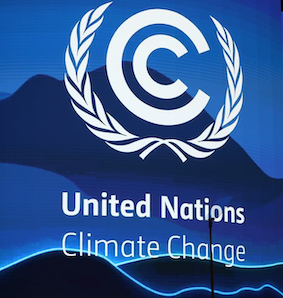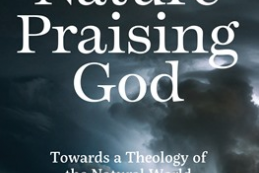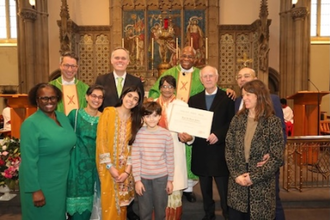Jesuit Missions at UN Climate Change Conference - Day 1

Jesuit Missions (JM) Campaigns and Advocacy Officer Richard Solly sends this reflection from the United Nations Climate Change Conference in Bonn.
Arriving at my first ever climate talks on the feast day of my patron saint, St Richard of Chichester, might have felt propitious, but it did not. I was late, because of train delays (I missed the protests in solidarity with Gaza as well as the planned time for the beginning of business). The weather felt tropical in its heat and humidity. And the day's official business, the beginning of the SB62 conference, was continually put back because of disagreements over the agenda. I was reminded of Pope Francis' words in his Encyclical Letter, Laudato Si: 'The failure of global summits on the environment make it plain that our politics are subject to technology and finance. There are too many special interests, and economic interests easily end up trumping the common good...' (Laudato Si 54)
A key reason for the differences of position which prevented many of the hoped-for agreements at the COP29 climate talks in Baku last November was money. Those who have it do not wish to give it to those who need it. As Pope Francis pointed out: 'A true "ecological debt" exists, particularly between the global north and south, connected to commercial imbalances with effects on the environment, and the disproportionate use of natural resources by certain countries over long periods of time.... The warming caused by huge consumption on the part of some rich countries has repercussions on the poorest areas of the world, especially Africa, where a rise in temperature, together with drought, has proved devastating for farming.' (LS 51)
These disagreements are still preventing progress. As one of my colleagues in the Network of Catholic Climate and Environment Actors mused, "I wonder how the end will be if we start like this."
Since the opening plenary seemed delayed indefinitely, I attended a side meeting about climate migration, which is also the subject of our Jesuit event to be held on Tuesday 24th June at 6.30pm CET and livestreamed. Again, Laudato Si specifically mentions this matter: 'There has been a tragic rise in the number of migrants seeking to flee from the growing poverty caused by environmental degradation. They are not recognised by international conventions as refugees; they bear the loss of the lives they have left behind, without enjoying any legal protection whatsoever. Sadly, there is a widespread indifference to such suffering, which is even now taking place throughout our world. Our lack of response to these tragedies involving our brothers and sisters points to the loss of that sense of responsibility for our fellow men and women upon which all civil society is founded.' (LS 25)
We heard, among other things, about the millions of cattle which have died as a result of drought in Kenya in recent years and the thousands of people displaced first as a result of this destruction of their herding livelihood and then by the destruction of homes caused by devastating floods which followed the drought - ominous changes in weather patterns which are clearly a result of a changing climate. It is to address such events that the Loss and Damage Fund has been established - but as contributors to the event pointed out, even if the Loss and Damage Fund works, it will provide money to affected communities. How do you put a financial value on the loss of a way of life, of a place full of memories and the remains of ancestors, of a community that has lived together for generations, when people are forced to move? Addressing 'non-financial losses' caused by climate chaos may be even more difficult than addressing financial losses. This human pain and suffering needs to be kept in mind by those who cling to their wealth when it plainly needs to be shared, or to a way of life which damages the climate, when it needs to be left behind.
As Pope Francis wrote: 'We need to strengthen the conviction that we are one single human family. There are no frontiers or barriers, political or social, behind which we can hide, still less is there room for the globalisation of indifference.' (LS 52)
Richard Solly, 17 June 2025


















